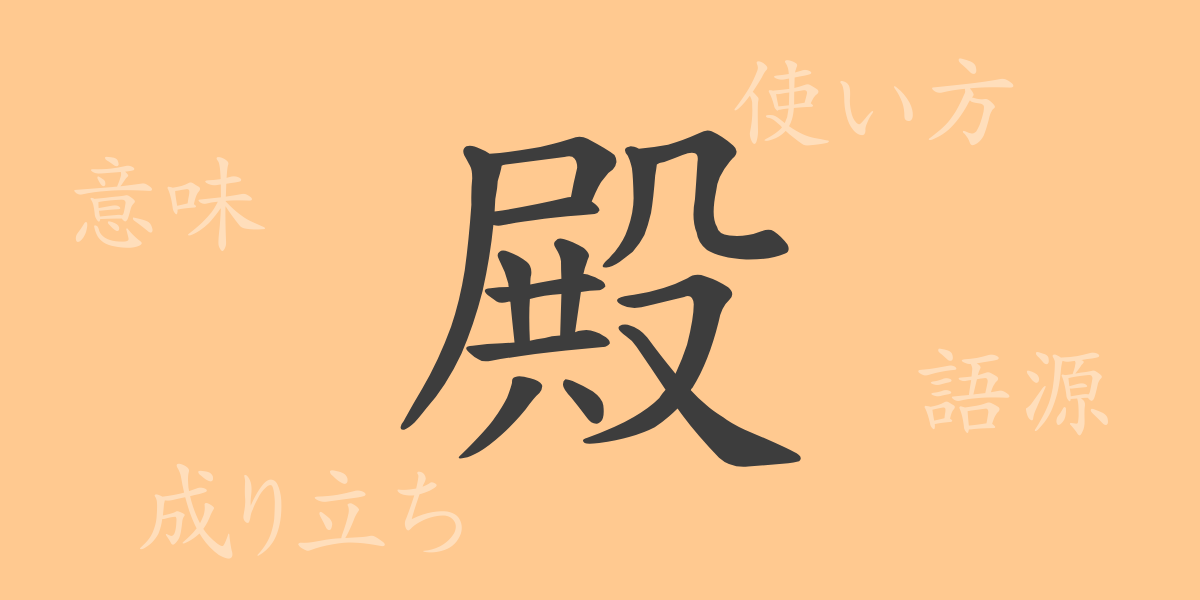Japanese characters, each with its own history and meaning, enrich the language and culture of Japan. The kanji ‘殿(デン)’ has played a significant role throughout Japanese history. This article explores ‘殿’, from its origins to its meanings, usages, and the phrases and proverbs it features in, providing a deep dive into the character’s significance and utility in Japanese.
Origins of ‘殿(デン)’
The kanji ‘殿’ originated from ancient China, initially representing a high place in a palace or house, using the architectural terms ‘⻏(ガイ・ウカンムリ)’ (roof) and ‘示(シメス)’ (pillar). Over time, ‘殿’ evolved beyond just architectural references to denote noble residents or as a term of respect.
Meaning and Usage of ‘殿(デン)’
‘殿’ has multiple meanings. Primarily, it refers to a room or building in a palace or castle. In feudal Japan, it was also used as a respectful title for lords and nobles. Today, it is commonly appended to names on envelopes to denote respect. The usage of ‘殿’ has changed over time but has consistently conveyed respect.
Readings, Stroke Count, and Radical of ‘殿(デン)’
‘殿’ offers various readings and important structural information:
- Readings: On’yomi ‘デン’, Kun’yomi ‘との’, ‘どの’
- Stroke Count: ‘殿’ consists of 13 strokes.
- Radical: The radical of ‘殿’ is ‘⻏(ガイ・ウカンムリ)’.
Phrases, Idioms, and Proverbs Using ‘殿(デン)’
‘殿’ is part of numerous idioms and proverbs, each reflecting unique aspects of Japanese culture:
- 殿様商売(トノサマショウバイ) – A business practice that ignores the needs of customers, akin to a lord who disregards his subjects.
- 殿様気分(トノサマキブン) – Acting selfishly without regard for others, literally feeling like a lord.
- 殿様の耳は驢馬の耳(トノサマノミミハロバノミミ) – A proverb suggesting that high-ranking individuals do not listen to criticism or advice, literally ‘A lord’s ears are like those of a donkey’.
Conclusion on ‘殿(デン)’
Understanding the history and meanings embedded in each kanji allows for a deeper appreciation of the Japanese language. ‘殿’, a character used to express respect and reverence, continues to be integral in modern Japanese, from addressing letters to forming idioms. This article has hopefully enhanced your understanding and appreciation of ‘殿’ and its role in Japanese tradition.

























